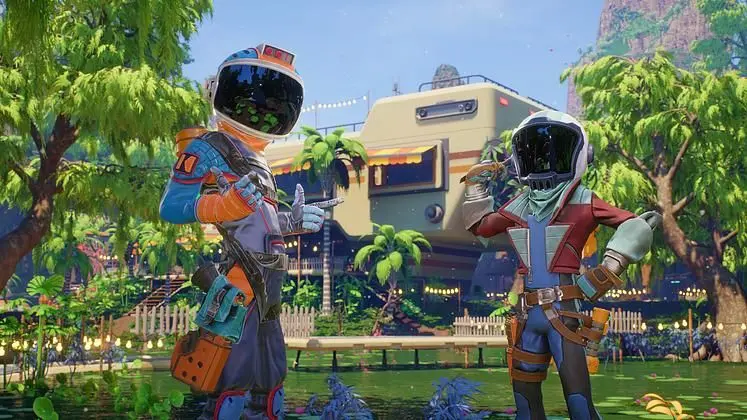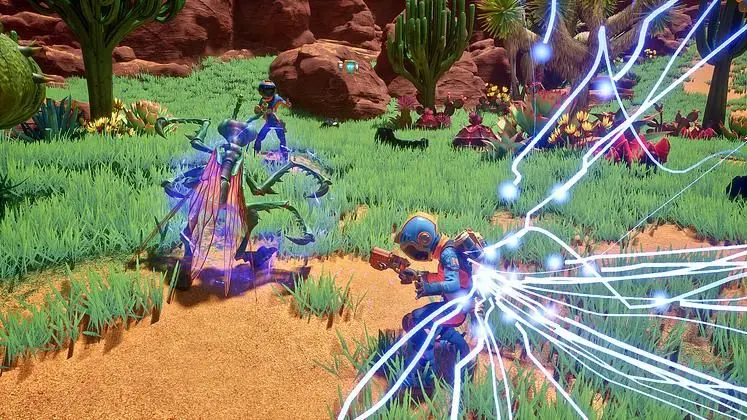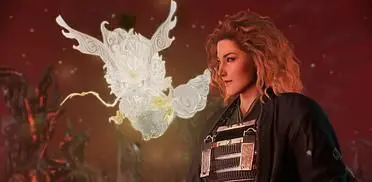It’s not every day we get to hear former AAA developers get candid about bad past experiences and what’s currently wrong with the games industry, which is why MinnMax’s long interview with two lead Revenge of the Savage Planet devs was so interesting.
Before jumping into the relevant bits of the interview (which you can watch in full below), a quick history lesson: Raccoon Logic Studios was formed in 2021, shortly after the closure of Typhoon Studios, the studio behind Journey to the Savage Planet which was founded in 2017 by Ubisoft and Warner Bros. Games veterans. It was Google who acquired, mismanaged, and later shut down the first venture by the team. That didn’t kill their desire to continue their journey with Revenge of the Savage Planet under a new name. By all accounts, these folks know a thing or two about the good, the bad, and the ugly of working on big video games, and have delivered two satisfying AA games in recent years with the Savage Planet titles.
“They’re not content companies, so they don’t understand art or media. They try to run creativity like they run their businesses and I think that’s why they’re struggling. The only way out of it would be if they suddenly realized there’s expertise they don’t have and they started to give some ownership or responsibility to the people that come from that business,” creative director Alex Hutchinson (of Assassin’s Creed and Far Cry fame) says of giants like Google who can’t get video games right.
While this might not apply to pushes made by media giants like Netflix Games, an effort which has also been struggling to become a publishing name gamers respect, it’s hard not to read this like a jab at the likes of Amazon. If you’ve been keeping track, the company has repeatedly tried (and failed) to develop games of its own which stick, though publishing deals like Lost Ark’s have been a reasonable success.
Hutchinson also believes some creatives in big projects are to blame for projects that fall to the wayside though: “There’s a lot of people in the business who work for big studios who didn’t actually personally do the work of closing those big games or getting out the door… They didn’t realize what it took, so they’re unable to close it, even though they’re very talented people.” Again, if you’ve been keeping tabs on the industry and some of the biggest names around and how long they take to actually ship games, this might ring a bell. Great ideas are one thing, and getting them somewhere where they’re ready for release is an entirely different one.
“Ideas get stale too… There’s a time component to that and… I do think after four to five years, it’s hard to sustain the momentum behind something. You get to this weird place where you can have executives or funding sources who are confident in it, and that’s the death spiral, when you have a team that’s in the infinite loop of kind of not shipping and you’ve got people at the publisher or funding who are like [doubtful],” head of studio Reid Schneider (who worked on modern classics like Batman: Arkham Origins) added. Again, we’ve seen this happen many times from the other side of the fence, so yeah.
The full interview, with MinnMax’s Ben Hanson (a Game Informer veteran) at the helm, goes on for a little over one hour and is full of wisdom from Hutchinson and Schneider on their latest game, past failures and successes, and what might be next for the industry, so we highly recommend giving it a watch (or listen) if you have the time.
For the latest gaming news, follow GameWatcher on BlueSky, check out our videos on YouTube, or give us a like on Facebook. We sometimes include affiliate links in our posts, which grants us a small commission, thank you. Please support independent Games Media. ❤️






